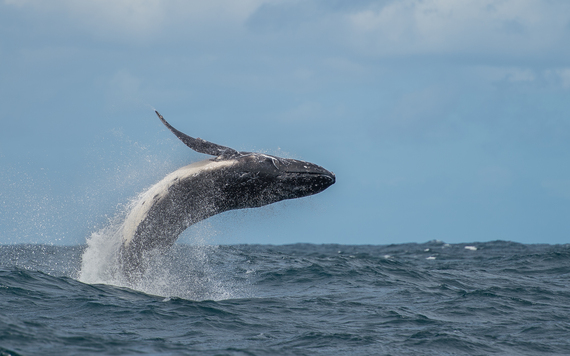Late last year, nearly 200 nations came together in Paris to reach a critical global climate agreement. The Paris climate agreement demonstrated that the international community can come together and successfully tackle a grave environmental problem of global scope.
It is now time for the international community to act on another grave global problem - the increasing degradation of the world's oceans.
Most people don't realize that managing almost two thirds of the globe's oceans requires international cooperation. This area of international waters is known as the "high seas." The high seas cover nearly half the surface of the planet and support fisheries and other resources of enormous importance to humanity.
This global commons is out of sight and out of mind, and we have collectively proven to be poor stewards of it. Declining fish stocks, rampant pollution, massive gyres of plastic waste, and species of whales and other sea life facing serious threats, are proof of our neglect.
Our dismal record of stewardship is in part due to the outdated international legal regime governing activities in oceans beyond our national borders. The high seas lack basic modern management tools the U.S. and other countries have deployed in our own waters for many decades. They include fully protected "marine parks," where we allow ocean life to thrive, undisturbed by industrial fishing, mining and other industrial activity. And uniform rules on how to assess and manage human activities in the ocean to prevent significant damage. Tools like these can go far to making our beleaguered seas more resilient.
Next week, the United Nations will resume negotiating a new treaty aimed at overhauling the antiquated high seas legal regime. Key issues under discussion include the scope of the new treaty and the timing of negotiations. Some nations prefer the status quo, with few restrictions on activities in international waters. They will likely try to stall the process, or exempt key big industries like fishing.
We can't let them succeed.
The climate agreement reached in Paris last December will start to bend the curve of a trajectory that was heading us toward climate disaster.
We can bend the curve heading toward disaster for our oceans as well. But we need collective international action to forge a strong agreement that requires large scale fully protected marine reserves, assessment and management of damaging human activities, and other modern management tools to address the increasing depletion, pollution and degradation of our ocean.
The oceans, and all of us, depend on the success of this endeavor. There isn't a moment to lose.
This post is part of a series produced by The Huffington Post in partnership with Ocean Unite, an initiative to unite and activate powerful voices for ocean-conservation action. The series is being produced to coincide with the UN's Preparatory Committee Meeting (Aug 26-Sept 9) on an internal legally binding instrument on marine biodiversity in areas beyond national jurisdiction and is a part of HuffPost's "What's Working" initiative, putting a spotlight on initiatives around the world that are solutions oriented. To read all the posts in the series, read here.
